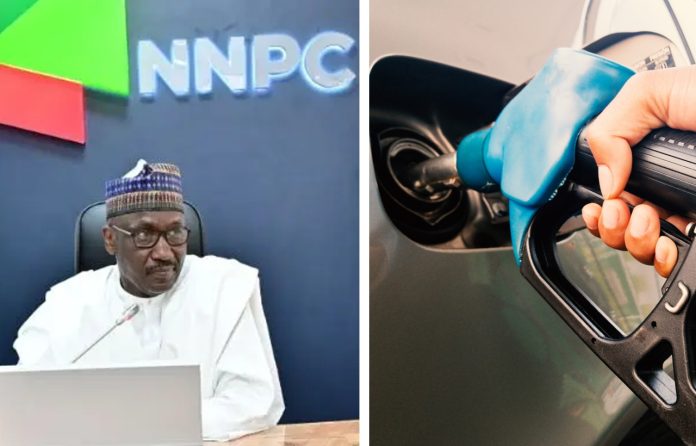News Investigators/ The Nigerian National Petroleum Company Limited (NNPCL), has admitted that the company is under financial strain that poses a threat to the sustainability of fuel supply.
Specifically, NNPC Ltd’s debt burden of about $6 billion owed to petrol suppliers has worsened petrol scarcity in Nigeria, a perennial feature since the beginning of 2024
.
The oil conglomerate had earlier blamed logistics challenges and flooding amongst others for the supply shortages of the essential commodity.
.
However, NNPCL spokesman Olufemi Soneye, revealed on Sunday that “financial strain has placed considerable pressure on the company and poses a threat to the sustainability of fuel supply”.
“In line with the Petroleum Industry Act (PIA), NNPC Ltd remains dedicated to its role as the supplier of last resort, ensuring national energy security.
“We are actively collaborating with relevant government agencies and other stakeholders to maintain a consistent supply of petroleum products nationwide.”
Nigeria, Africa’s most populous nation, faces energy challenges, with all its state-owned refineries non-operational. The country is heavily reliant on imported refined petroleum products, with the state-run NNPC being the major importer of the essential commodities.
Fuel queues are commonplace in the country. Prices of petrol tripled since the removal of subsidy in May 2023, from around ₦200/litre to about ₦800/litre, compounding the woes of the citizens who power their vehicles, and generating sets with petrol, no thanks to decades-long epileptic electricity supply.
The government simultaneously unified forex windows, with the value of the naira nosediving terribly from $1/₦700 to over $1/₦1600 at the parallel market. Prices of food and basic commodities immediately climbed through the roof as Nigerians battled attendant inflation.
Recently, the Independent Petroleum Marketers Association of Nigeria (IPMAN) said the landing cost per litre of petrol has made it impossible for petrol marketers to import the essential commodity just as was done by the NNPCL.
“Right now, the landing cost of PMS is over 1200 naira, without the margin of the marketers, transportation and other logistics,” said IPMAN National Operations Controller, Zarama Mustapha.
“NNPC sells to marketers at ₦565 or so. That means there is a subsidy of almost ₦600 to ₦700 as of now.
“Whether they (government officials) say there is subsidy or there is not subsidy, the fact on the ground clearly states that there is something they are under-recovering.”
Last December, Aliko Dangote, Africa’s leading industrialist, commenced operations at his $20bn facility sited in Lagos with 350,000 barrels a day. The refinery, which has been bogged by regulatory battles, hopes to achieve its full capacity of 650,000 barrels per day by the end of the year.
The refinery has begun the supply of diesel and aviation fuel to marketers in the country while petrol supply is expected to commence soon.


